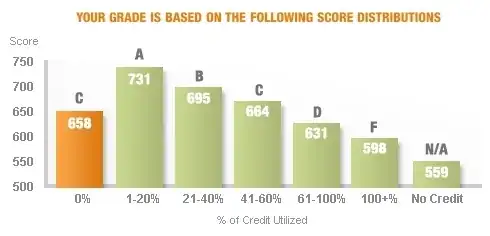I've heard and read that high utilization of credit hurts, but what does that mean exactly? Does that mean high utilization month-to-month, or simply high utilization at all, even when paid off in full at the end of the month?
Scenario: At the beginning of the month, you make a purchase that is 70% of your credit. Supposing that you don't use the credit card for the rest of the month and you have the cash to pay it off, does it matter when you pay off the credit card? Immediately or at the end of the month?
Does the length of time of that high utilization, even within one month, affect your credit score/limit? Is it simply the fact that you used that credit at all an issue?
